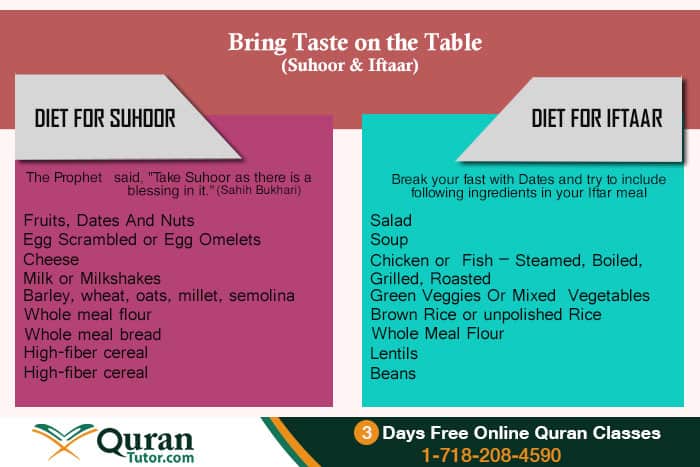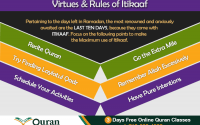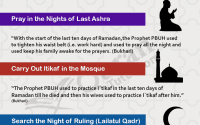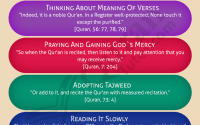How to Bring Taste on the Table – Suhoor & Iftar Tips
Ramadan, the blessed month of Sawm and Ibadah is here. It is the most celebrated month for Muslims because of the rewards given by Allah upon fasting. Besides other tips and rules for Ramadan Fasting, Muslim women begin to ponder over how they can make different sort of Suhoor and Iftar food items for their families to help during fast. Moreover, many gatherings are arranged by families and friends to break the fast together, which mean the housewives have to select delicious and unique food items to present before guests to win over their praise. With so much pressure to think about food, Muslim women are overwhelmed during the month of Ramadan to keep in mind their health and dietary issues and often look around to external sources to help them with food. To help you in deciding a balanced menu for Ramadan we have bought you a little plan in light of Quran and Sunnah, which can help you in maintaining health as well as taste in food.

The main concern for human diet during Ramadan Is to keep your body hydrated. It is very important to include plenty of water in your life to avoid dehydration while fasting. Moreover, in order to maintain muscle mass in your body, you should eat protein rich food items. Fruits and Vegetables also provide good nutrition to the body while keeping stomach filled without any heavy feeling of bloating. You should try to consume complex carbohydrates at Suhoor which are slow in digestion and help you throughout the day giving energy during Sawm.
Avoid eating fried, oily and heavy food items as they cannot be easily digested and cause fattening. Most Asian families tend to overdose on fried food during Ramadan thus increasing weight instead of increasing Iman.
Different cultures have different food preferences and style of cooking but you can include some Basic elements to your Suhoor and Iftar to ensure a healthy nutritious and delicious menu during Ramdan.
Diet for Suhoor:
The Prophet said, “Take Suhoor as there is a blessing in it.”
(Hadith – Sahih Bukhari, Vol.3, Book 31, #146, Narrated Anas bin Malik)
- Fruits, Dates And Nuts
- Egg Scrambled or Egg Omelets
- Cheese
- Milk or Milkshakes
- Barley, wheat, oats, millet, semolina
- Whole meal flour
- Whole meal bread
- High-fiber cereal
- Yogurt
Diet after Breaking Fast:
Break your fast with dates and try to include following ingredients in your meal after Iftar:
- Salad
- Soup
- Chicken or Fish – Steamed, Boiled, Grilled, Roasted
- Green Veggies Or Mixed Vegetables
- Brown Rice or unpolished Rice
- Whole Meal Flour
- Lentils
- Beans
Some important things to remember during Ramadan are:
Do’s for Fasting and Ramadan Diet
- Eat at Suhoor time -Do not miss your Suhoor food. It is Sunnah to eat at Suhoor which can be fulfilled by drinking a sip of water too. Messenger of Allah (PBUH) said: “The pre-dawn meal is blessed, so do not neglect it even if you only take a sip of water. Verily, Allah and the angels pray for those who have pre-dawn meals.” (Fiqh-us-Sunnah 3.130a . This is related by Ahmad)
- Quickness in Breaking the Fast- It is found that usually there is a lot of confusion with regards to when to Break your Fast since people follow different timings from Masjids. It is recommended to break the fast as soon as possible.
The Prophet Muhammad (PBUH) said, “Those of my servants who are quickest in breaking their fast are dearest to me.” Narrated AbuHurayrah [Tirmidhi transmitted it.]
Allah’s Apostle said, “The people will remain on the right path as long as they hasten the breaking of the fast.” Sahih Bukhari, Vol. 3, Book 31, Number 178, Narrated Sahl bin Sad
Don’ts of Fasting and Ramadan Diet
- Avoid eating excessively – At the time of Iftar, most of us are overwhelmed by hunger and wish to eat everything on the table. Moreover, to avoid feeling hungry or feeling weak, we try to fill up our stomachs with as much food as possible which leads to overeating and makes us lethargic. We should avoid overeating it all costs as it hampers in our Ibadah and also negates the spirit of Ramadan which is to eat moderately and remember the less fortunate people during Fast. Prophet (PBUH) said: “No human ever filled a vessel worse than the stomach. Sufficient for any son of Adam are some morsels to keep his back straight. But if it must be, then one third for his food, one third for his drink and one third for his breath.” (Ahmad, At-Tirmidhi, An-Nasaa’I, Ibn Majah ) Ash-Shafi’I (RA) said: I have not filled myself in sixteen years because filling oneself makes the body heavy, removes clear understanding, induces sleep and makes one weak for worship.
- Sleeping throughout the Fast – Most young Muslims tend to sleep after Suhoor and wake up just before Iftar. This is the worst way to spend your Sawm and such habits should be discouraged by parents. The whole essence of Ramadan lies in self discipline and if that is missing from your life than the spirit of Fasting is not fulfilled. Ibrahim al-Nakha’i (RA), one of the teachers of Imam Abu Hanifa (RA) mentioned: “The people ruined before you were done in by three characteristics: too much talking, too much eating, and too much sleeping.”
It is imperative to Ramdan that we eat less and control our desire to eat excessively but along with that we can eat tasteful food items which are healthy and boost our energy. Making a diet plan and deciding what to eat during Ramadan beforehand will help you a lot in maintaining a balanced diet which will have positive effects on your health. You can easily carry out the same diet plan after Ramdan as well to have a permanent effect in your health and lifestyle. Little changes during Ramadan can help us in many ways if implemented in other months as well. It only takes a little determination to stick to the plan and Ramadan is the best time for that.









